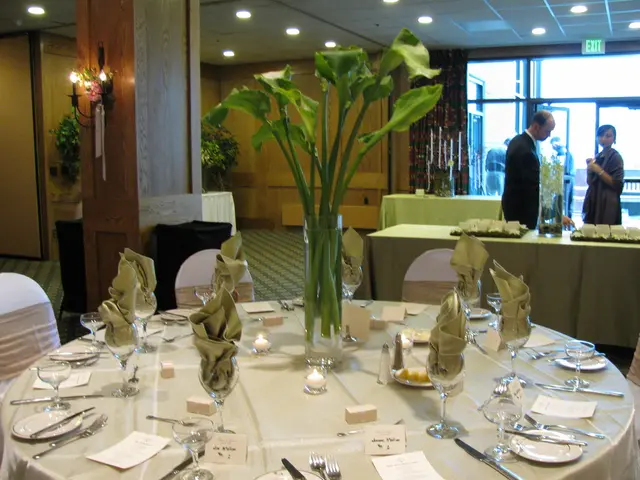Macaque monkeys eagerly take on the parental role when the biological father is present. - Berber monkey males prefer taking on paternal roles.
Barbary Macaques Embrace Fatherhood Beyond Father's Day
Male Barbary macaques, often mistakenly referred to as Barbary apes, contribute more to child-rearing than previously thought. According to Roland Hilgartner, director of the Affenberg-Salem monkey park on Lake Constance, these macaques not only care for young but also relieve mothers.
In the early stages, the infants are primarily with their mothers, but the fathers are also present. "Male Barbary macaques show love and affection towards the babies, providing relief to the mothers," Hilgartner explained. They also establish connections with other fathers through the infants.
The Affenberg in Salem, southern Baden-Württemberg, houses the largest monkey enclosure in Germany, spanning around 20 hectares of forested area. Approximately 200 Barbary macaques call this park home. Since April, four monkey babies have been born, as per Hilgartner.
Barbary macaques do not adhere to conventional family structures. They live in larger groups rather than as pairs or families, and females often have multiple mating partners. While this makes paternity less certain, males show affection towards the babies within the group. "It could be their own offspring," added Hilgartner.
Additional births are expected in Salem even after Father's Day. Hilgartner still anticipates two to three monkey babies this year, but the sex of the animals can only be determined over time.
On average, five to fifteen monkey babies are born annually in the park, according to Hilgartner. The pregnancies of the mothers are often challenging to detect. "In spring, Barbary macaques consume young leaves and shoots," said the park director. "This can make it difficult to determine if a female is pregnant."
The role of fathers in Barbary macaque communities is significant yet limited. Males may interact with infants to strengthen social bonds, but direct paternal care is rare due to uncertain paternity and the promiscuous mating system. Direct interactions with infants by males are mostly for social bonding and group cohesion, while infant care is a community effort, with alloparenting—care by non-mothers—being common and crucial for socialization and group stability.
In the community of Barbary macaques, the male macaques not only exhibit affection towards the young, but also participate in alloparenting to alleviate the mothers, creating a unique family dynamic that extends beyond the traditional nuclear family and even beyond Father's Day. Despite their promiscuous mating system, the macaques' day-to-day lifestyle intertwines home-and-garden activities and relationships, reflecting a remarkable adjustment to their societal policy within their forested habitat in Salem.








